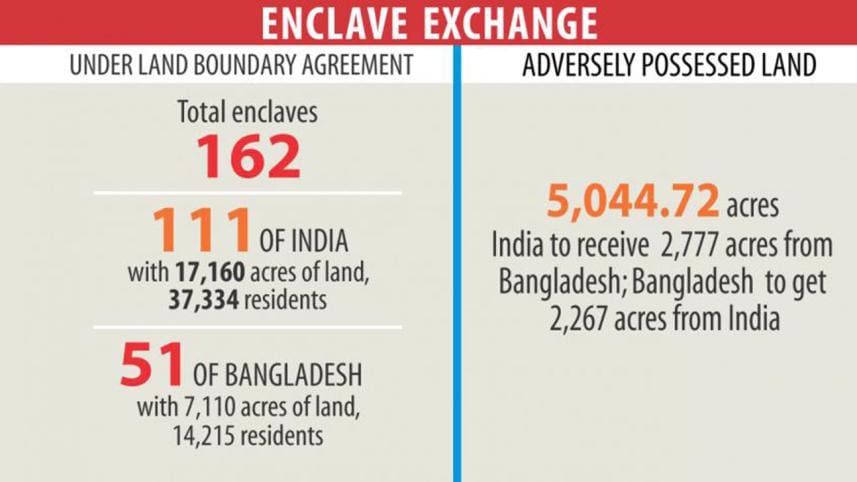Lok Sabha passes India-Bangladesh boundary bill

Indian Parliament has cleared a bill to ratify the Land Boundary Agreement with Bangladesh, with the Lok Sabha also passing the measure today.
Prime Minister Narendra Modi thanked Sonia Gandhi for lending support to the bill. Modi approached the Congress president in the Lok Sabha with hands folded in thanks.
Minutes after the lower house of the Indian parliament cleared the bill, Modi telephoned his Bangladeshi counterpart Sheikh Hasina and described the bill's passage as a "historic milestone" in bilateral ties.
The legislation is the 119th amendment to the Constitution. The Rajya Sabha yesterday unanimously passed the historic bill which would operationalise the Land Boundary Agreement with Bangladesh providing for exchange of territories to settle the 41-year-old border issue.
The bill aims at giving effect to the acquiring of territories by India and transfer of territories to Bangladesh through retaining of adverse possession and exchange of enclaves in pursuance of the agreement of 1974.
The territories in Assam, West Bengal, Tripura and Meghalaya come under the ambit of the bill.
In Bangladesh, the territories including Nilphamari, Feni, Moulvibazar, Kushtia and Panchagarh come under the domain of the pact.
Modi said the LBA "would contribute to a stable and peaceful boundary, better management and coordination of the border and will lead to enhanced security as well."
Modi, who posted a number of separate messages on Twitter, said, "Today (Thursday) a historic milestone has been reached in India-Bangladesh relations after the passing of the Constitutional Amendment by Parliament."
"This reflects the collective will of the nation to build constructive relations with our neighbours," he said in a separate post.
In another post, Modi said the LBA "would contribute to a stable and peaceful boundary, better management and coordination of the border and will lead to enhanced security as well."
Noting that the government will ensure Indians moving to Bangladesh would enjoy "dignified life", Indian External Affairs Minister Sushma Swaraj said there would not be any "demographic change or exchange" and people from either side can avail citizenship if they wish.
Swaraj also said, "This agreement will not shrink our borders. We will have an advantage of 500 acres. Though 10,000 acres will go to them, it is just notional and those enclaves are deep."
As far as Assam is concerned, India will be getting 470 acres of land from the neighbouring country, while 268 acres would go to Bangladesh, she added. The bill would require ratification of at least 50 percent of the state legislatures before it comes into effect.
It also provides that the central government may, by notification in the official gazette, appoint the date for acquisition and transfer of territories.
The bill amends the First Schedule of the Constitution to give effect to an agreement entered into by India and Bangladesh on the acquiring and transfer of territories between the two countries on May 16, 1974.
The India-Bangladesh Agreement was signed in 1974, but was not ratified as it involved transfer of territory which required a Constitutional Amendment. Hence, the bill has been introduced.
The bill refers to demarcated land boundaries in accordance with the agreement of 1974 which underwent further modification through letters exchanged thereafter and a protocol on September 6, 2011.



 For all latest news, follow The Daily Star's Google News channel.
For all latest news, follow The Daily Star's Google News channel.
Comments